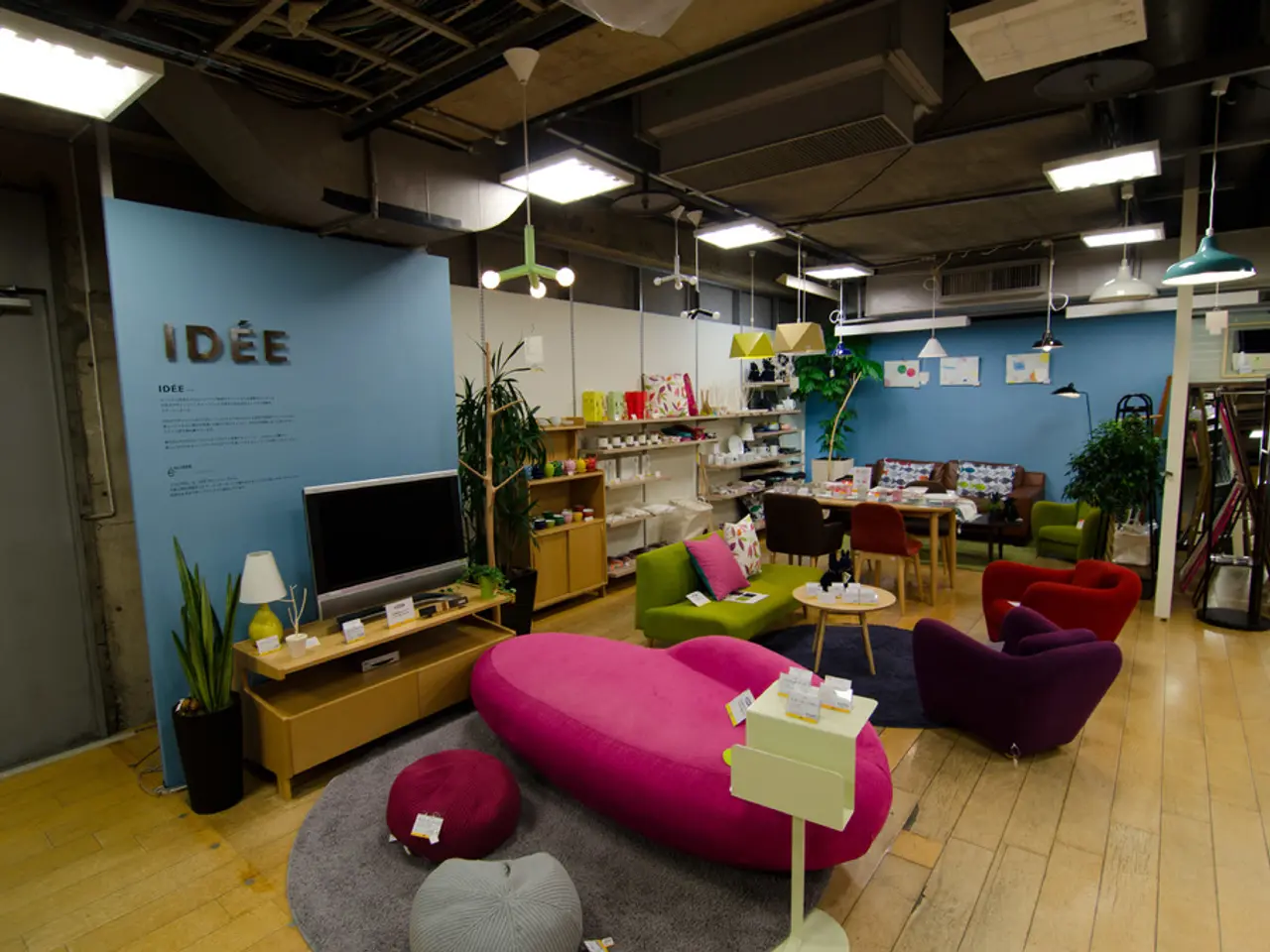Disappointed by the hurdles encountered in second-hand furniture sales, a businesswoman established AptDeco - her own online platform. The venture has garnered over $20 million in financial backing.
The peer-to-peer furniture resale market is thriving, driven by a growing consumer interest in sustainability and cost-effective shopping. This trend is part of a broader global movement towards secondhand goods, which is expected to reach unprecedented heights in the coming years.
One of the key players in the U.S. market is AptDeco, a platform that enables consumers to buy popular furniture brands like West Elm, Jonathan Adler, and Pottery Barn, at up to 70% off. The company's unique business model, which includes a tech-enabled logistics platform for nationwide shipping, has made it a go-to destination for secondhand furniture enthusiasts.
AptDeco was founded in 2014 by Reham Fagiri, a former engineering manager at Goldman Sachs. The company has since raised $20 million in angel and venture capital from notable investors such as Morgan Stanley, Liquid 2 Ventures, and Great Oaks Venture Capital.
The U.S. market for second-hand merchandise is projected to reach $186 billion by 2024, with a compound annual growth rate of 17.2% from 2025 to 2035. Particularly sought-after is wooden furniture, with a 39.33% revenue share in 2023.
AptDeco has diverted close to 20 million pounds of furniture from landfills, demonstrating its commitment to sustainability. The company's operations are efficient, with employees picking up furniture in delivery vans and using a proprietary network of carriers to bring it to customers. AptDeco does not open warehouses, instead relying on its tech-enabled logistics platform.
AptDeco faces competition from rivals including Chairish and Kaiyo. However, the company has built its most extensive customer base in New York, New Jersey, and Connecticut, positioning itself as a leading player in the region.
Another factor contributing to the growth of the peer-to-peer furniture resale market is the increasing interest in sustainability and environmental awareness among consumers. Secondhand markets support sustainable consumption practices by extending the life of existing products.
Additionally, the affordability and quality of secondhand furniture are attracting cost-conscious consumers. In a market where prices for new furniture can be prohibitive, secondhand options offer a more budget-friendly alternative without compromising on style or quality.
The rise of digital platforms has also made it easier for both buyers and sellers to engage in the secondhand market. Platforms like AptDeco and Chairish provide accessible marketplaces for transactions, with features such as online purchasing, a dispute process, and shipping options.
Effective marketing strategies, such as those employed by Chairish, can significantly enhance consumer engagement and sales within the sector. For instance, Chairish's "U.S. Vintage is Tariff Free" initiative, which highlighted the cost savings associated with secondhand furniture, significantly boosted engagement and sales.
Interestingly, tariffs may soon add to the appeal of secondhand furniture due to rising costs elsewhere. This could further fuel the growth of the peer-to-peer furniture resale market, as consumers seek affordable alternatives to new purchases.
As more brands explore how to participate in resale to expand their revenue streams and soften the impact of tariffs, it is expected that the peer-to-peer furniture resale market will continue to grow and evolve. The online furniture resale market is transitioning from peer-to-peer models towards more curated and professional seller-dominated platforms, as seen with Chairish's transformation.
In conclusion, the U.S. peer-to-peer furniture resale market is benefiting from broader trends in secondhand goods, digital accessibility, and targeted marketing strategies. Platforms like AptDeco are leading the way in providing sustainable, affordable, and stylish secondhand furniture options to consumers.
- Entrepreneurs like Reham Fagiri, founder of AptDeco, are investing in the peer-to-peer furniture resale market, using business strategies that combine technology and sustainability, such as a tech-enabled logistics platform for nationwide shipping.
- The finance industry is becoming more involved in the circular economy, as companies like AptDeco raise millions in venture capital, driving the growth of the second-hand furniture market, which is projected to reach $186 billion by 2024.
- As businesses in the furniture industry are seeking new revenue streams and cost-effective solutions, they are turning to green business practices like the resale of second-hand furniture, driven by consumer interest in sustainability and cost-effective shopping.




